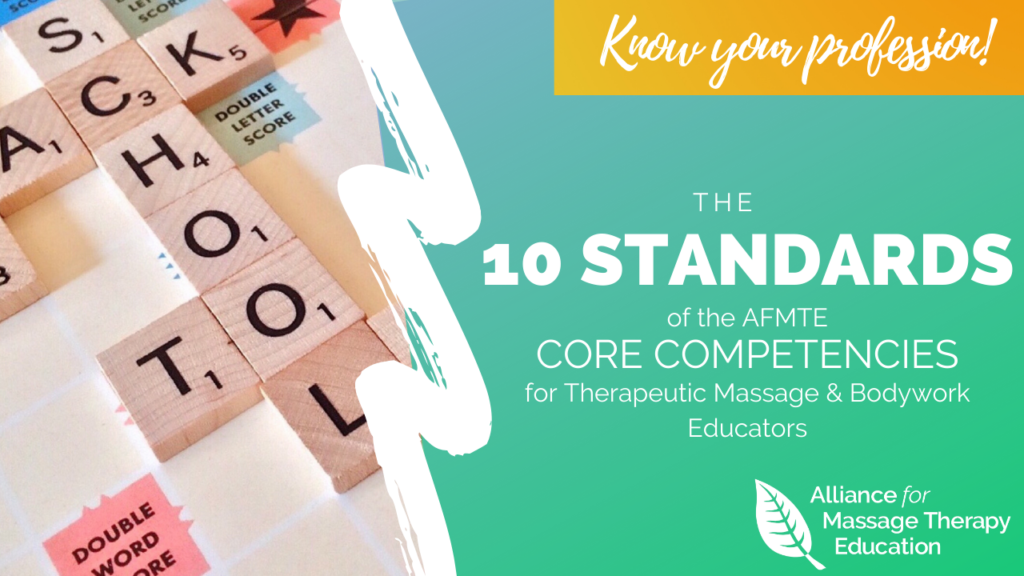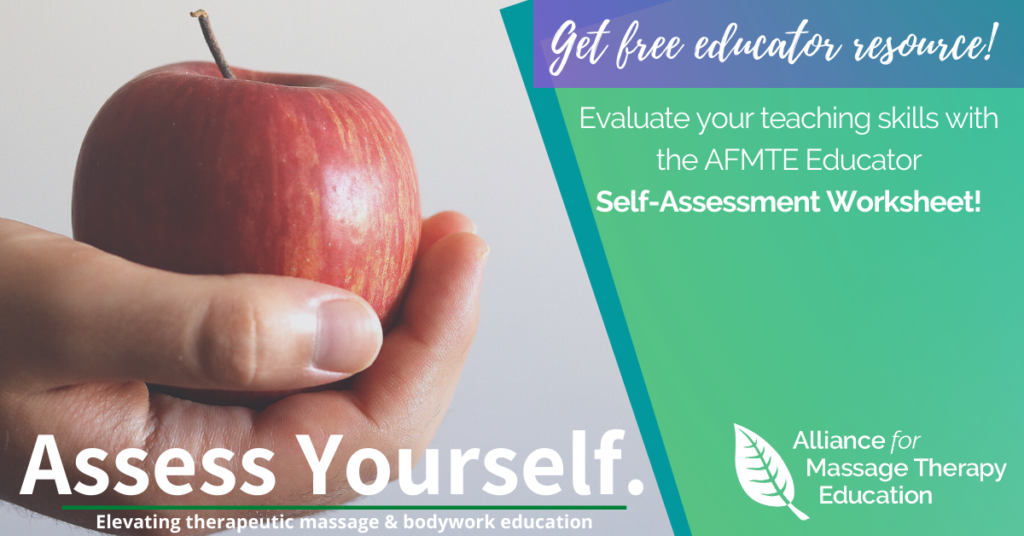
When massage educators first learn about the AFMTE’s Core Competencies, many report the need to digest the full document in chunks. As a big picture overview to the Core Competencies, it can be helpful to first review the 10 Standards of the Core Competencies.
Standard 1: Learner Development and Well-being
Teachers recognize that patterns of learning and development vary individually within and across the physical, cognitive, emotional, spiritual and social aspects. Teachers design and implement developmentally appropriate and challenging learning experiences and maintains a focus on the progress of learners throughout the educational process.
Standard 2: Learning Differences and Integrative Approaches
Teachers use understanding of individual differences and cultural factors to ensure inclusive learning environments that enable learners to meet their full potential, and recognize the interconnected nature of human experience to provide adult learners with rich opportunities for personal growth and integration.
Standard 3: Learning Environments
Teachers work with learners to create environments that support individual and collaborative learning and that encourage positive social interaction, active engagement in learning and self-motivation.
Standard 4: Content Knowledge
Teachers understand the central concepts, tools of inquiry, and structures of the subject(s) they teach. They create learning experiences that make these aspects of the subject accessible and meaningful for learners to assure competency in the content.
Standard 5: Application of Content
Teachers understand how to connect theory and methodology and use differing perspectives to engage learners in critical thinking and creativity. They understand how to build the comprehensive skills needed for the practice of massage therapy
Standard 6: Planning for Instruction
Teachers plan instruction that supports every student in meeting well-defined learning objectives by drawing upon knowledge of subject, curriculum, andragogy and pedagogy. They also draw upon knowledge of learners and the body-centered nature of massage therapy education.
Standard 7: Instructional Strategies and Delivery
Teachers understand and use a variety of instructional strategies to motivate learners to develop a comprehensive understanding of theory and methodology, and to build skills to apply the knowledge in meaningful and effective ways.
Standard 8: Observation and Assessment
Teachers understand and use multiple methods of assessment to engage and receive feedback from learners in their own growth, to observe and evaluate learner progress, and to guide the teacher’s and learner’s decision making.
Standard 9: Professional Development and Ethical Conduct
Teachers participate in ongoing learning activities, engage in self-reflection, and receive input from others on the performance of their duties to increase their knowledge and skills. They brings a high level of ethical awareness to their work with learners and colleagues, and maintain a healthy balance in their professional life
Standard 10: Collaboration
Teachers participate in activities that advance the art and science of massage therapy through collaboration with colleagues and other education and health care professionals.
Learn More about the KSAs for the 10 Standards
In the full version of the AFMTE Core Competencies, you will also find descriptions of the Knowledge, Skills and Abilities (KSAs) that must be demonstrated to be deemed competent as a therapeutic massage and bodywork educator in meeting the 10 Standards.
If you’re interested in learning more, you can get the full version of the AFMTE Core Competencies (as a PDF download) for free HERE.
Do you think you meet the 10 Standards?

